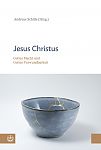Zentrale Begriffe des christlichen Glaubens ökumenisch betrachtet
Johannes Schelhas
Über die katholische Kirche wird in der Öffentlichkeit kritisch gesprochen. Man weiß, was sie gut macht und vor allem, was sie schlecht hinbekommt. Macht und Missbrauch empören. Während die einen heute für radikale Veränderungen eintreten, hängen andere nostalgisch an Formen aus vergangenen Zeiten. Sensibilität für Gott und Toleranz gibt es hier und dort nicht. Die Überlieferung des Glaubenskerns ist beiden fremd. Wofür steht die Kirche? Für wen geht sie? Wen sollten die Kirchen unbedingt mitnehmen? Wozu werden sie gebraucht?
Johannes Schelhas antwortet: Gebraucht, damit Menschen in Frieden, Gerechtigkeit und Hoffnung versöhnt leben können. Die Kirche möchte jeden Menschen und dessen Mitwelt auf den Wegen durch die Welt mitnehmen. Menschen gehen ihre Wege in unterschiedlichen Kirchen zusammen mit anderen Menschen und dem unsichtbaren Jesus. Weil Gottes Reich wachsen soll, müssen die Kirchen ihren elementaren Auftrag aus dem Glauben an Gott erfüllen: das Evangelium anwenden, für die Wahrheit eintreten, Freiheit ermöglichen und schützen. So nützen sie dem Wohl der Menschen. Zugleich anerkennen sie in ihrem Handeln Gott.
Johannes Schelhas, Dr., Jahrgang 1961, ist seit 2020 Inhaber des Lehrstuhls für Dogmatik an der Katholisch-Theologischen Fakultät der Universität Bonn. Zuvor war er Professor für Dogmatik und Dogmengeschichte an der Theologischen Fakultät Trier.
[Gospel Truth Freedom – Central Concepts of the Christian Faith considered Ecumenically]
The Catholic Church is talked about critically in public. People know what it does well and, above all, what it manages badly. Power and abuse are a cause for outrage. While some now advocate radical changes, others cling nostalgically to forms from the past. Neither here nor there does sensitivity to God and tolerance exist. The transmission of the core of faith is foreign to both. What does the church stand for? Whom does it work for? Whom should the churches definitely take along? What are they useful for?
John Schelhas offers an answer: They are useful for helping people live reconciled in peace, justice and hope. The church wants to take along every human and his or her contemporaries on the journeys through the world. People walk their paths in different churches together with other people and the invisible Jesus. Because God's Kingdom should grow, the churches must fulfill their elementary mission from out of faith in God: to apply the gospel, to stand up for the truth, to make freedom possible and to protect it. In this way, they serve people’s well-being. At the same time, they acknowledge God in their actions.






